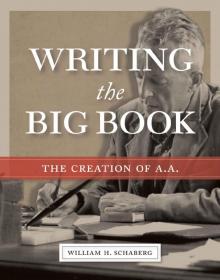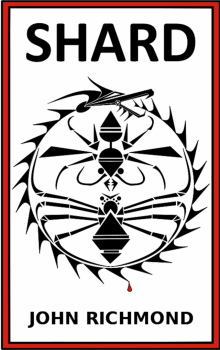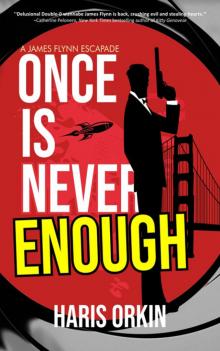Writing the Big Book: The Creation of A.A.


Author: William H. Schaberg
Category: Other
Published: 2019
Series:
View: 578
Read OnlineThe definitive history of writing and producing the"Big Book" of Alcoholics Anonymous, told through extensive access to the group's archives.
Alcoholics Anonymous is arguably the most significant self-help book published in the twentieth century. Released in 1939, the “Big Book,” as it’s commonly known, has sold an estimated 37 million copies, been translated into seventy languages, and spawned numerous recovery communities around the world while remaining a vibrant plan for recovery from addiction in all its forms for millions of people. While there are many books about A.A. history, most rely on anecdotal stories told well after the fact by Bill Wilson and other early members—accounts that have proved to be woefully inaccurate at times. Writing the Big Book brings exhaustive research, academic discipline, and informed insight to the subject not seen since Ernest Kurtz’s Not-God , published forty years ago.
Focusing primarily on the eighteen months from October 1937, when a book was first proposed, and April 1939 when Alcoholics Anonymous was published, Schaberg’s history is based on eleven years of research into the wealth of 1930s documents currently preserved in several A.A. archives. Woven together into an exciting narrative, these real-time documents tell an almost week-by-week story of how the book was created, providing more than a few unexpected turns and surprising departures from the hallowed stories that have been so widely circulated about early A.A. history.
Fast-paced, engaging, and contrary, Writing the Big Book presents a vivid picture of how early A.A. operated and grew and reveals many previously unreported details about the colorful cast of characters who were responsible for making that group so successful.
**Review
"If you have read my husband’s book, Not-God: A History of Alcoholics Anonymous , you may think as I did, that you have a good understanding of that history. And you would be wrong. Writing the Big Book zeroes in on the first five years in a way that no other history of A.A. has captured. And these years were critical. Like a good suspense novel, this book captures the day to day struggles these few intrepid men encountered over those years – in the heart of the great depression…. How does a bunch of homeless alcoholics start a worldwide movement? Schaberg’s book tells us how they did it, tiny step by tiny step." ― Linda Farris Kurtz, Professor Emerita, Eastern Michigan University, Author of Recovery Groups
" Writing the Big Book is the most important work on the history of A.A. since Ernie Kurtz’s Not-God*. Finally, we have a resource that draws upon decades of recent research to separate fact from myth regarding the origin of Alcoholics Anonymous." ― William L. White, author of Slaying the Dragon
" This is a book that A.A. historians will want to read and reference from now on . . . the product of incredibly detailed research in the archives at the central A.A. office in New York City and at Stepping Stones in Bedford Hills, New York, along with Lois Wilson’s diary, and a host of other primary sources."― *Glenn F. Chesnut, Emeritus Professor of History, Indiana University South Bend
" Writing the Big Book details the chapter-by-chapter authoring of Alcoholics Anonymous and provides a revealing anthology of its primary contributors . . . .The revelations about Hank Parkhurst’s role in particular cast a welcome and inclusive light on his critical importance, as he is shown to be a true unsung hero." ― Arthur S., A.A. historian from of Arlington, TX
" Schaberg’s in-depth research and masterful presentation of previously unpublished facts about A.A.’s early history makes for an explosive package . . . Far from presenting a dry historical record, Writing the Big Book is lively, fascinating, compelling, and insightful―more like a thriller than a documentary."― Jay Stinnett, A.A. historian
" Writing the Big Book is an invaluable contribution to Alcoholics Anonymous and its membership. Relying on outstanding research and thoroughness, Schaberg shapes a coherent story out of a vast trove of archival material―and reveals that the Big Book, far from being simply, " divinely inspired", was the work of perfectly flawed human beings, living and striving under great stress and difficulty."― Kevin Hanlon, co-creator of the documentary Bill W.
" Writing the Big Book* surprises in how well it defines and demonstrates the condition of alcoholism, while so clearly rendering portraits of its interesting cast of characters. I came away with a much better understanding of what some of my dearest friends and family struggle with as alcoholics, along with a deep appreciation for the work that went into the creation of A.A." ― David Stickney, contributing editor of The Nietzsche Canon
" For many in recovery, Bill Wilson is a Moses freeing them from the bondage of addiction. As a result, a variety of myths have evolved around him, some encouraged by his own efforts to tell the story and to sell the spiritual program of Alcoholics Anonymous. Bill Schaberg does a great service to the Fellowship of Alcoholics Anonymous with his exhaustive examination of archival documents, separating myth from fact. The result is a clearer picture of the beginnings of A.A. and the development of the Big Book, along with a rich and compelling portrait of Bill W. Less myth produces a much better story. This volume is a must read for any interested in the history of A.A."― *The Very Rev. Ward B. Ewing, D.D., Trustee and past Chair of the General Service Board of Alcoholics Anonymous, Retired Dean and President of The General Theological Seminary, New York, NY
About the Author
William H. Schaberg is a scholar and rare book dealer based in Fairfield, Connecticut. His interest in the history of ideas led him to amass a large collection of first edition philosophy texts and inspired his first scholarly work, The Nietzsche Canon: A Publication History and Bibliography (University of Chicago Press, 1995). Schaberg has delivered lectures on Nietzsche, William James, and other philosophers with his mentor King Dykeman at his alma mater, Fairfield University. He has served in the United States Air Force and ran a family printing business for over thirty years before retiring to commit more energy to his bookselling business, Athena Rare Books. Schaberg’s scholarly investigation into the authorship of Alcoholics Anonymous was an eleven-year project that, like his Nietzsche book, began with bibliographical confusion over the text’s prepublication history and culminated in an unprecedented chronology of the “Big Book” origins.
Alcoholics Anonymous is arguably the most significant self-help book published in the twentieth century. Released in 1939, the “Big Book,” as it’s commonly known, has sold an estimated 37 million copies, been translated into seventy languages, and spawned numerous recovery communities around the world while remaining a vibrant plan for recovery from addiction in all its forms for millions of people. While there are many books about A.A. history, most rely on anecdotal stories told well after the fact by Bill Wilson and other early members—accounts that have proved to be woefully inaccurate at times. Writing the Big Book brings exhaustive research, academic discipline, and informed insight to the subject not seen since Ernest Kurtz’s Not-God , published forty years ago.
Focusing primarily on the eighteen months from October 1937, when a book was first proposed, and April 1939 when Alcoholics Anonymous was published, Schaberg’s history is based on eleven years of research into the wealth of 1930s documents currently preserved in several A.A. archives. Woven together into an exciting narrative, these real-time documents tell an almost week-by-week story of how the book was created, providing more than a few unexpected turns and surprising departures from the hallowed stories that have been so widely circulated about early A.A. history.
Fast-paced, engaging, and contrary, Writing the Big Book presents a vivid picture of how early A.A. operated and grew and reveals many previously unreported details about the colorful cast of characters who were responsible for making that group so successful.
**Review
"If you have read my husband’s book, Not-God: A History of Alcoholics Anonymous , you may think as I did, that you have a good understanding of that history. And you would be wrong. Writing the Big Book zeroes in on the first five years in a way that no other history of A.A. has captured. And these years were critical. Like a good suspense novel, this book captures the day to day struggles these few intrepid men encountered over those years – in the heart of the great depression…. How does a bunch of homeless alcoholics start a worldwide movement? Schaberg’s book tells us how they did it, tiny step by tiny step." ― Linda Farris Kurtz, Professor Emerita, Eastern Michigan University, Author of Recovery Groups
" Writing the Big Book is the most important work on the history of A.A. since Ernie Kurtz’s Not-God*. Finally, we have a resource that draws upon decades of recent research to separate fact from myth regarding the origin of Alcoholics Anonymous." ― William L. White, author of Slaying the Dragon
" This is a book that A.A. historians will want to read and reference from now on . . . the product of incredibly detailed research in the archives at the central A.A. office in New York City and at Stepping Stones in Bedford Hills, New York, along with Lois Wilson’s diary, and a host of other primary sources."― *Glenn F. Chesnut, Emeritus Professor of History, Indiana University South Bend
" Writing the Big Book details the chapter-by-chapter authoring of Alcoholics Anonymous and provides a revealing anthology of its primary contributors . . . .The revelations about Hank Parkhurst’s role in particular cast a welcome and inclusive light on his critical importance, as he is shown to be a true unsung hero." ― Arthur S., A.A. historian from of Arlington, TX
" Schaberg’s in-depth research and masterful presentation of previously unpublished facts about A.A.’s early history makes for an explosive package . . . Far from presenting a dry historical record, Writing the Big Book is lively, fascinating, compelling, and insightful―more like a thriller than a documentary."― Jay Stinnett, A.A. historian
" Writing the Big Book is an invaluable contribution to Alcoholics Anonymous and its membership. Relying on outstanding research and thoroughness, Schaberg shapes a coherent story out of a vast trove of archival material―and reveals that the Big Book, far from being simply, " divinely inspired", was the work of perfectly flawed human beings, living and striving under great stress and difficulty."― Kevin Hanlon, co-creator of the documentary Bill W.
" Writing the Big Book* surprises in how well it defines and demonstrates the condition of alcoholism, while so clearly rendering portraits of its interesting cast of characters. I came away with a much better understanding of what some of my dearest friends and family struggle with as alcoholics, along with a deep appreciation for the work that went into the creation of A.A." ― David Stickney, contributing editor of The Nietzsche Canon
" For many in recovery, Bill Wilson is a Moses freeing them from the bondage of addiction. As a result, a variety of myths have evolved around him, some encouraged by his own efforts to tell the story and to sell the spiritual program of Alcoholics Anonymous. Bill Schaberg does a great service to the Fellowship of Alcoholics Anonymous with his exhaustive examination of archival documents, separating myth from fact. The result is a clearer picture of the beginnings of A.A. and the development of the Big Book, along with a rich and compelling portrait of Bill W. Less myth produces a much better story. This volume is a must read for any interested in the history of A.A."― *The Very Rev. Ward B. Ewing, D.D., Trustee and past Chair of the General Service Board of Alcoholics Anonymous, Retired Dean and President of The General Theological Seminary, New York, NY
About the Author
William H. Schaberg is a scholar and rare book dealer based in Fairfield, Connecticut. His interest in the history of ideas led him to amass a large collection of first edition philosophy texts and inspired his first scholarly work, The Nietzsche Canon: A Publication History and Bibliography (University of Chicago Press, 1995). Schaberg has delivered lectures on Nietzsche, William James, and other philosophers with his mentor King Dykeman at his alma mater, Fairfield University. He has served in the United States Air Force and ran a family printing business for over thirty years before retiring to commit more energy to his bookselling business, Athena Rare Books. Schaberg’s scholarly investigation into the authorship of Alcoholics Anonymous was an eleven-year project that, like his Nietzsche book, began with bibliographical confusion over the text’s prepublication history and culminated in an unprecedented chronology of the “Big Book” origins.
 Lethal Liaisons - A Jack West Novel (Jack West Mystery Book 2)
Lethal Liaisons - A Jack West Novel (Jack West Mystery Book 2) Shard
Shard Brides on the Run (Books 1-4): Small-Town Romance Series
Brides on the Run (Books 1-4): Small-Town Romance Series Summer of the Three Pagodas
Summer of the Three Pagodas Faithful Daughter of Israel
Faithful Daughter of Israel The Box: Tales From the Darkroom
The Box: Tales From the Darkroom Once Is Never Enough
Once Is Never Enough Old Bones
Old Bones